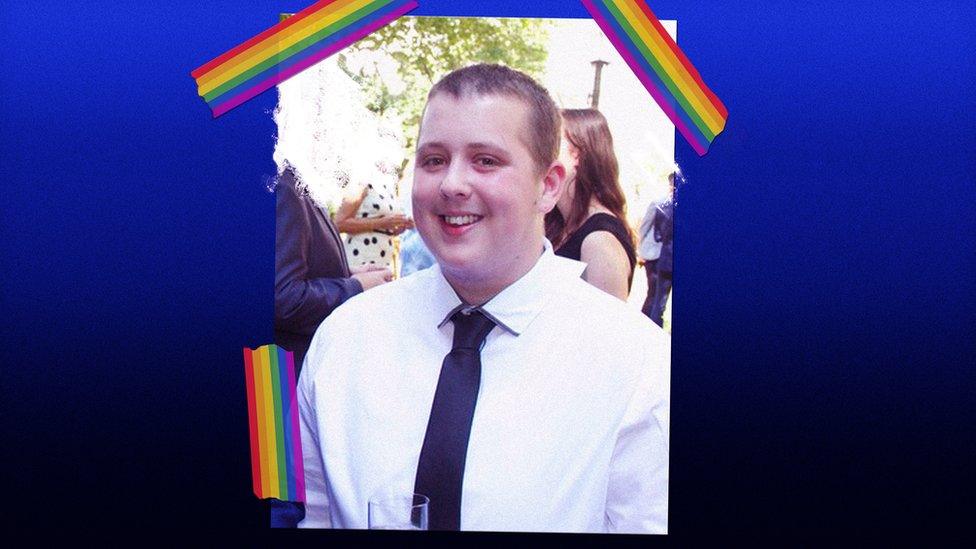Transgender hate crimes recorded by police go up 81%
- Published
A charity says "transphobia is everywhere", but police say more crimes are being reported.
The number of transgender hate crimes recorded by police forces in England, Scotland and Wales has risen by 81%, latest figures suggest.
Data obtained by the BBC showed there were 1,944 crimes across 36 forces in the last financial year compared with 1,073 in 2016-17.
The Stonewall charity said it showed the "consequences of a society where transphobia is everywhere".
The Home Office said it was largely due to better reporting and recording.
Some 36 out of 44 police forces in England, Scotland and Wales fully responded to a BBC freedom of information request for their most up to date figures. Eight forces did not provide the full data.
West Yorkshire Police and South Yorkshire Police saw reporting of transgender hate crimes more than treble over three years.
Suffolk Constabulary and Merseyside Police were the only forces which recorded fewer crimes in 2018-19 than in 2016-17.
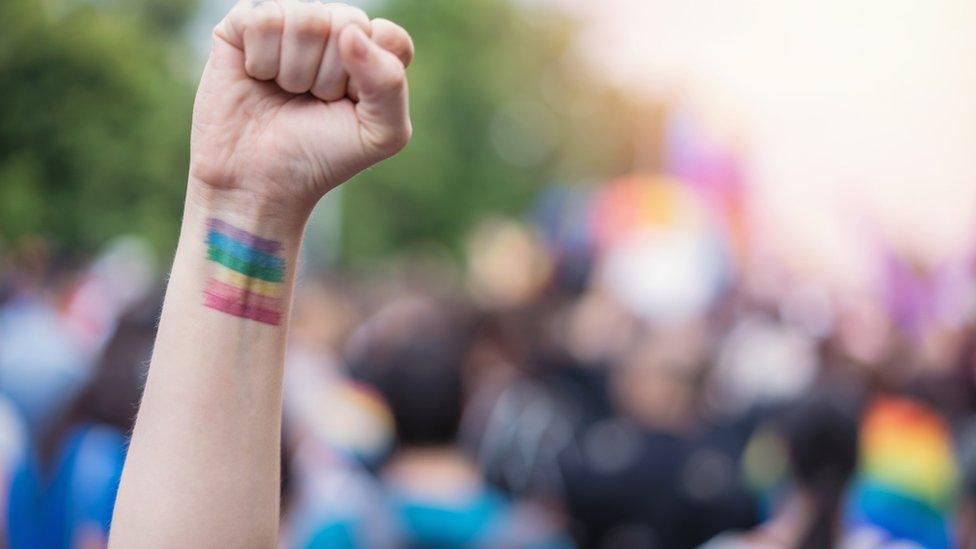
The figures were gathered by a BBC freedom of information request, with 36 out of 44 police forces responding
In Wales there were 82 transgender hate crimes in 2018-19, up from 37 in 2016-17.
Police Scotland recorded 92 crimes in the year to March 2019, compared with 76 two years earlier.
Sue Pascoe, who lives near York, was flagged as a vulnerable person by North Yorkshire Police for the amount of transgender hate abuse and threats she had received.
"It's a sad fact of life that this abuse is going to happen and I'll challenge it whenever it does," she said.
"The trend for the last five years is nothing but going up and those divisions are in our society generally. For me it's one of the scariest times I've lived through and I'm 59 now."
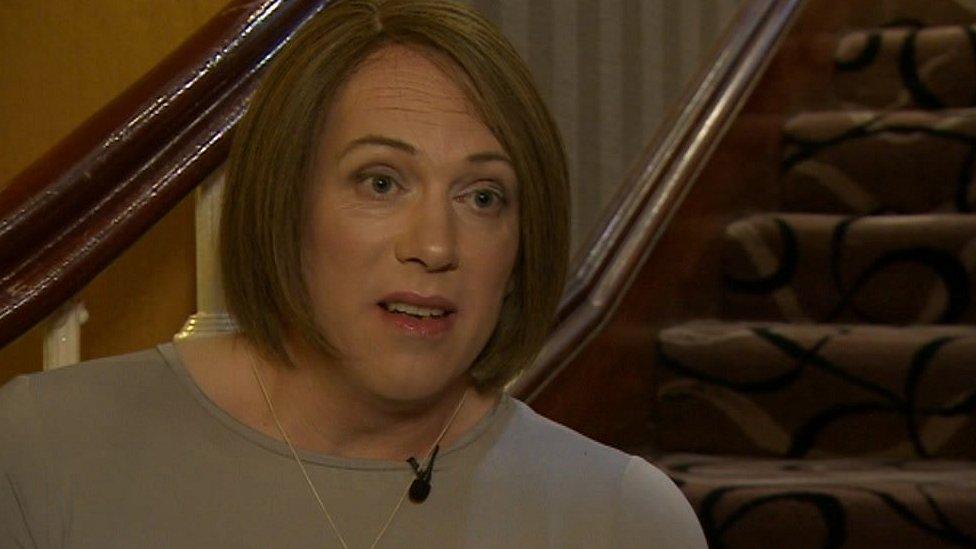
Andi Woolford says she was targeted while she was at work
Equal rights charity Stonewall estimated that two in five trans people had experienced a hate crime or incident in the past year.
Andi Woolford, from Wakefield, West Yorkshire, works in social housing and was abused while she was sitting in her car.
"A guy came out of a block of flats, called me a paedophile, threatened to stab me, smashed my car up, held a dog chain up to my face, just really unbelievable."
"Given what's happening on the other side of the Atlantic and the divisions with Brexit, everything seems to be kind of tribal - oh you're not in my tribe so therefore I must hate you."

What is hate crime?
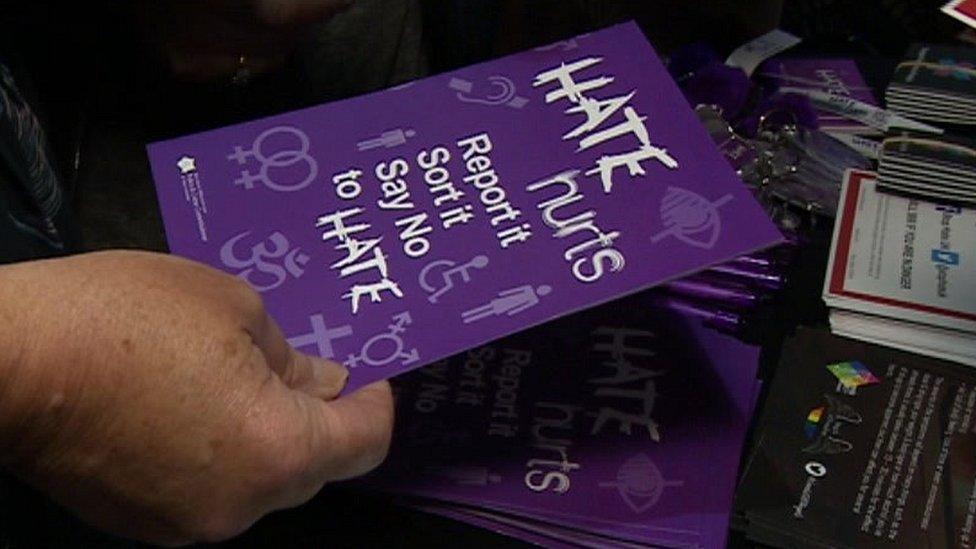
West Yorkshire Police is currently running a campaign to help prevent hate crime
A hate crime is defined as "any criminal offence which is perceived, by the victim or any other person, to be motivated by a hostility or prejudice" based on one of five categories: religion, faith or belief; race, ethnicity or nationality; sexual orientation; disability; or gender identity.
Section 146 of The Criminal Justice Act 2003,, external amended in 2012, says that if an offence is motivated by hostility towards persons who are transgender then prosecutors can apply to the court to increase the offender's sentence - called a sentence uplift.

Laura Russell, from Stonewall, said: "These statistics are the real life consequences of a society where transphobia is everywhere - from the front pages of newspapers, to social media, and on our streets.
"We need people to realise how severe the situation is for trans people, and to be active in standing up as a visible ally to trans people, in whatever way they can."

Analysis
By BBC LGBT Correspondent Ben Hunte
As these latest hate crime figures show, transgender people in the UK currently have it harder than most.
Hearing people talk about being too scared to leave their homes in fear of being attacked does not sound like modern day Britain, but this is the sad reality for a lot of transgender men and women.
While the increased rates may be somewhat due to more people coming forward about their experiences, some may find it shocking that more is not being done to protect these clearly vulnerable individuals.
Many have described the current plight of transgender people as being similar to that of the gay rights movement in the 1980s and 1990s. Restricted, ridiculed and ignored.
Transgender people have their existence debated on a near daily basis across UK media, and several activists believe this negative attention reinforces the poor treatment they receive on our streets.
Whilst the gender debate rages on, many of those at the heart of it will have to continue living in fear.

Deputy Chief Constable Julie Cooke, from the National Police Chiefs' Council, said: "Traditionally, transphobic hate crimes have been significantly under-reported but we are working closely with trans groups to increase awareness and understanding of our staff; as well as to build confidence and trust in the police by the trans community.
"We believe some of the increase may be down to better reporting, however, there is always more that can be done."
A Home Office spokesperson said: "Abuse or violence directed at someone on the basis of their transgender identity is never acceptable.
"That's why we are committed to tackling hate crime in all its forms, including abuse targeted at transgender people, through the government's hate crime action plan."

- Published31 March 2019
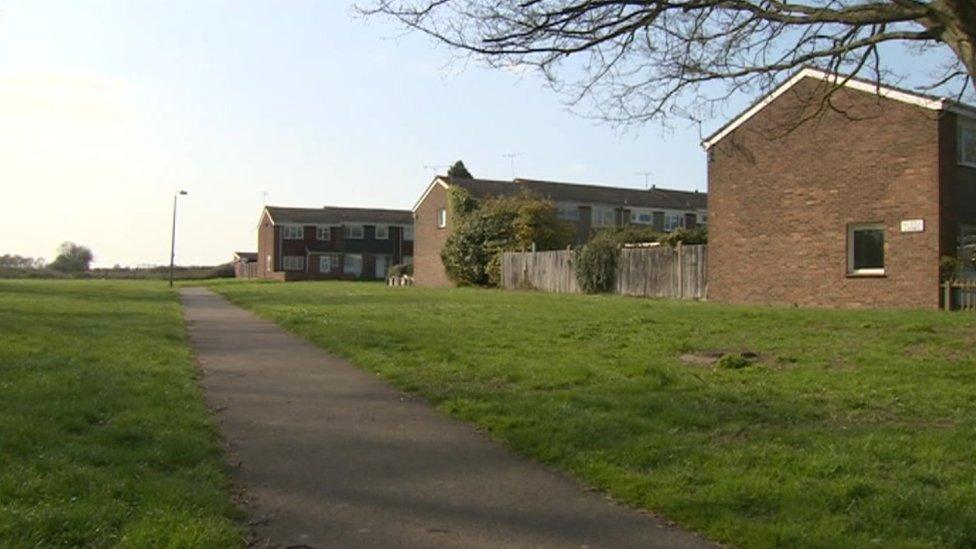
- Published29 May 2019

- Published20 March 2019
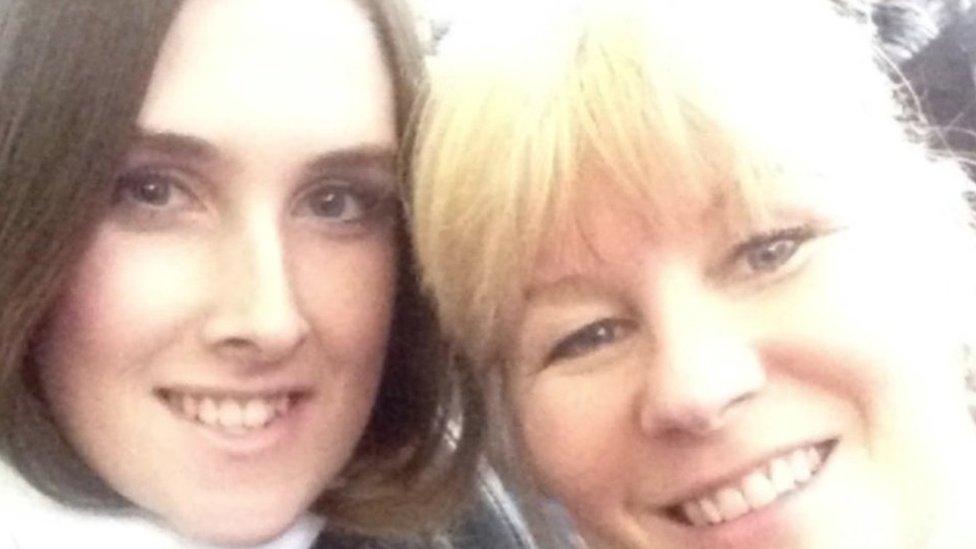
- Published21 December 2018
